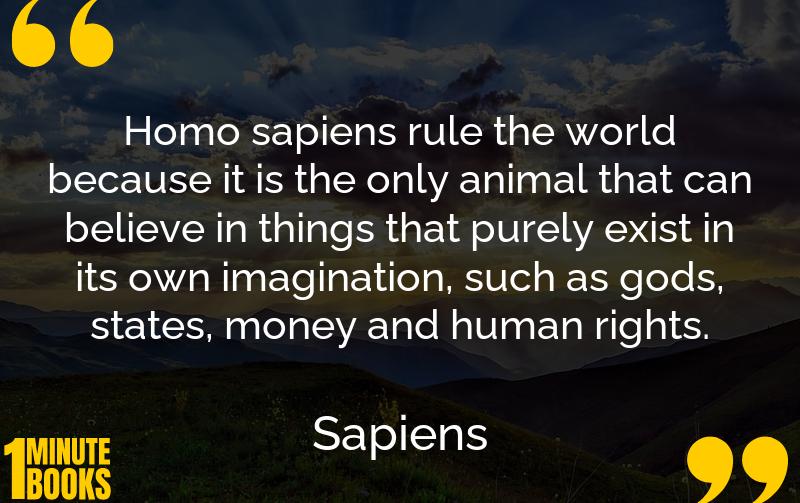
Sapiens explores human evolution through cognitive, agricultural, and scientific revolutions that shaped societies and beliefs, enabling Homo sapiens to dominate the planet through collaboration and imagination.
Main Lessons
- Humans evolved through three pivotal revolutions: cognitive, agricultural, and scientific.
- The cognitive revolution allowed humans to create shared myths, enabling cooperation on a large scale.
- Fictive language, a cognitive development, underpins complex social structures like religion, politics, and economics.
- The agricultural revolution fueled population growth and the formation of complex societies.
- Scientific advancements transformed humanity’s understanding of nature and fueled technological progress.
- Our ability to believe in shared concepts gives humans an edge over other species.
- Capitalism, distinct from wealth, relies on reinvesting earnings to expand production.
- Happiness correlates more with escaping poverty than amassing wealth beyond needs.
- Harari explores how imagined realities shape human societies and motivate actions.
- Questions about humanity’s future stem from our historical journey and technological evolution.
- Despite technological advancement, early lives might offer insights into basic happiness.
- Religion shapes humanity’s spiritual journey, posing questions about morality and existence.
- Collective learning, or human collaboration, has driven societal progress.
- Imagined orders, like laws and concepts of property, are core to human societies.
- The book invites reevaluation of human culture as an invention through philosophical reflection.








